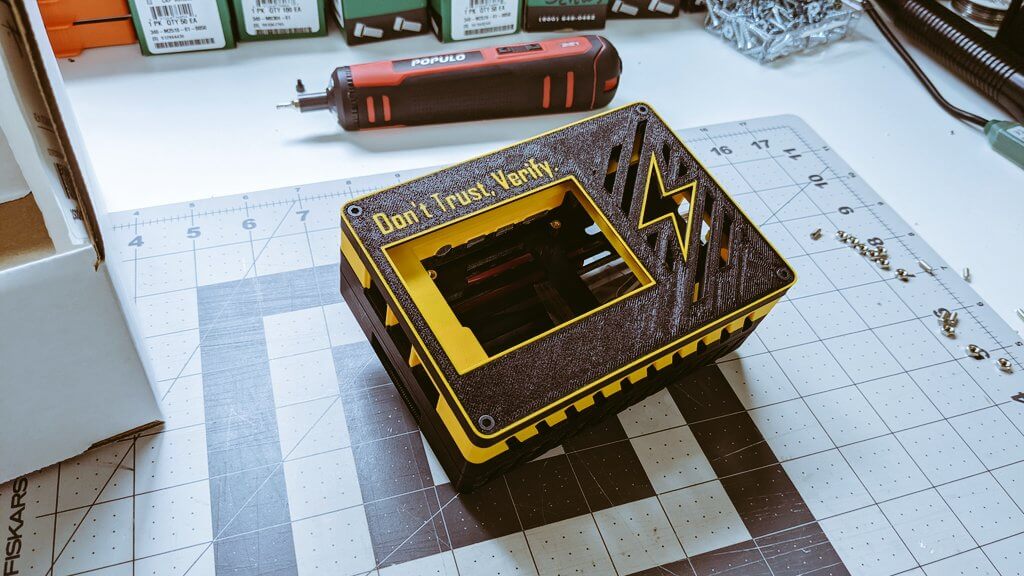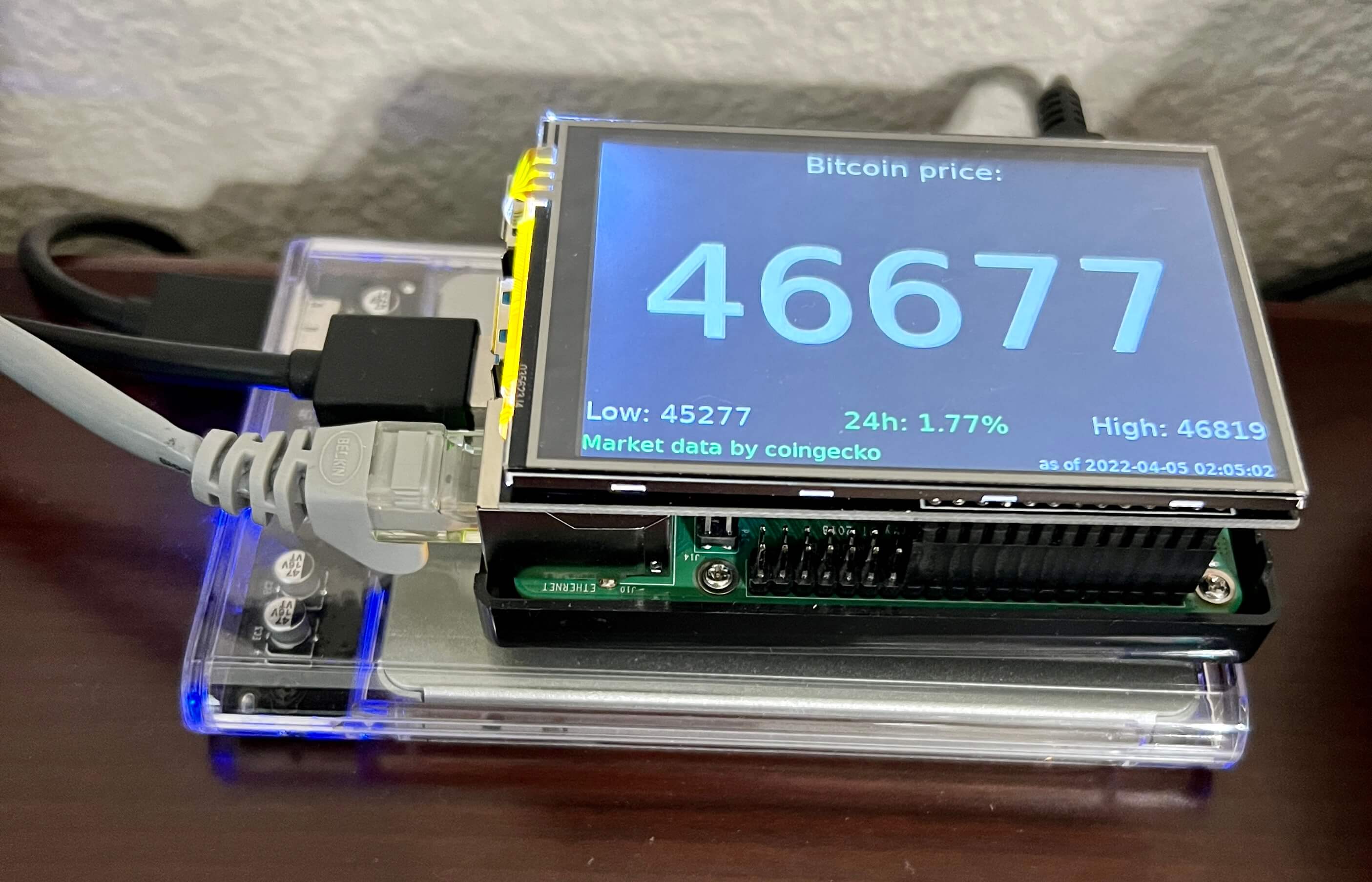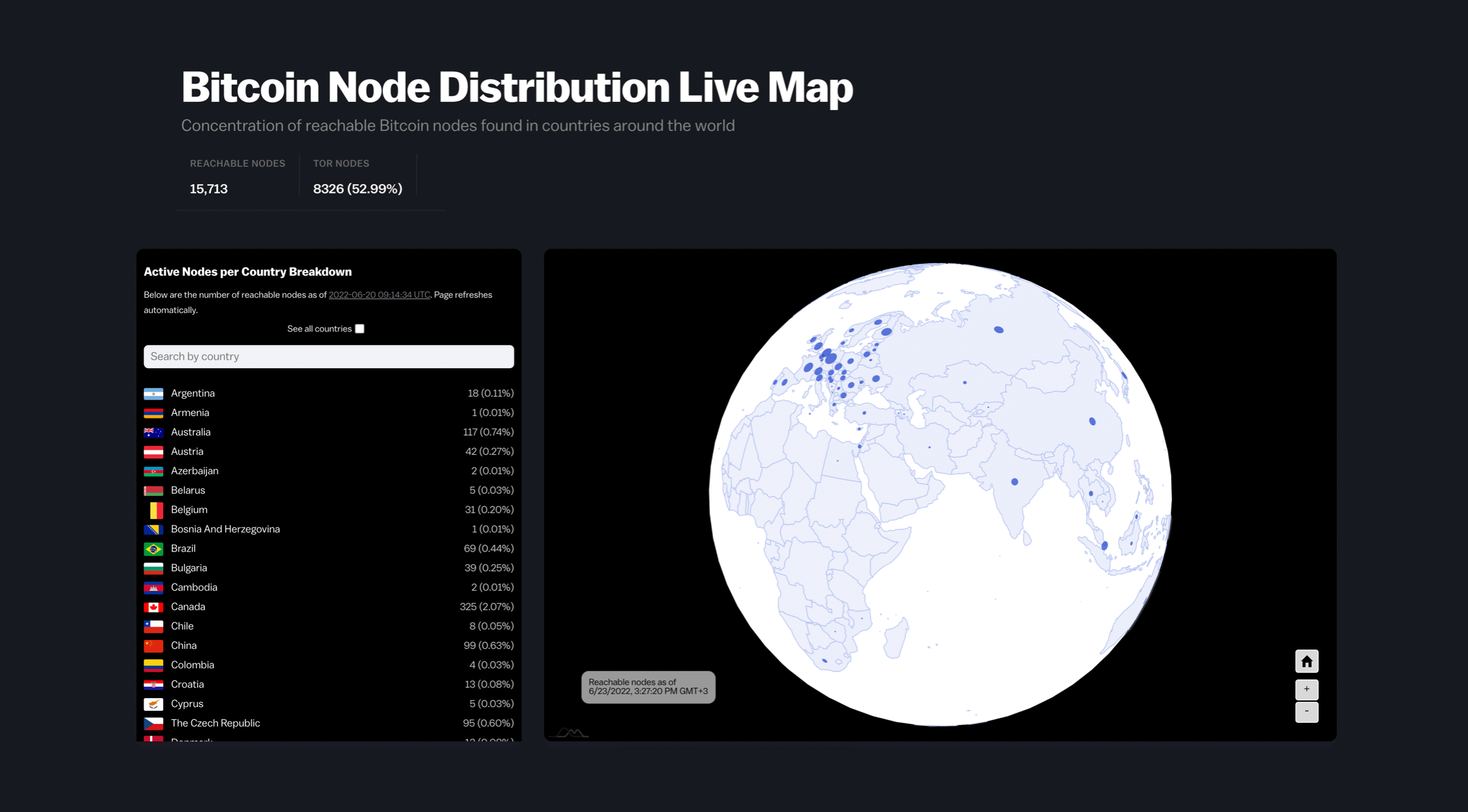You don't run a full node to help bitcoin. You run a full node to help yourself.
You've probably run across the mantra, "Don't trust, verify" while falling down the Bitcoin rabbit hole.
That’s because, when you run your own bitcoin node, you are not trusting a website, wallet, or block explorer with information about the state of your balance, transactions, or other blockchain information.
A node helps to protect you from bad actors and promotes keeping the network fully decentralized.

What is a Bitcoin node?
A Bitcoin node is simply software or a device that runs the Bitcoin protocol. Nodes contain the full or partially pruned database of transactions, originating all the way back to the Genesis Block in 2009 to the latest block height of a valid block mined by a miner.
Nodes preserve the integrity of the Bitcoin blockchain by enforcing "the consensus rules, no matter what."
They do this by verifying that no coins have been double spent and each transaction follows the established protocol rules. Additionally, nodes store a copy of the entire blockchain.
The more nodes there are running, the more censorship-resistant and resilient to attacks the network will become.
Without nodes, no one would know which coins have been spent already and who has what amount of balance. Note that the only nodes receiving an economic incentive to provide services are mining nodes.
Reasons to run a node
Whereas miners are compensated with newly minted BTC for adding blocks to the Bitcoin blockchain, full nodes are not. It’s a common myth that there is no incentive for users to run their own full node. Here are some reasons you might want to run a node.
Privacy
Running your own full node is the most private way to interact with the Bitcoin network.
Some bitcoin wallets are just front-ends that connect to a back-end server run by a company. These types of wallets have no privacy at all and the operating company has the ability to see all of the user's addresses, transactions, and sometimes the user's IP address. You should not use web wallets.
Using a Bitcoin exchange is probably the absolute worst as it reveals information to third parties about which addresses belong to you.
Trustless
Running your own full node allows you to connect the blockchain to your own wallet, giving additional peace of mind that data such as addresses and balances are never shared externally.
This also allows you to verify for yourself that no bitcoin rules were violated since the beginning of Bitcoin. It’s like having your own personal federal agent inspect each deposit or withdrawal to ensure that it’s legitimate.
You’re able to participate in the Bitcoin network without being reliant on any third party to tell you information, like a block explorer or wallet provider.
Strength
Nodes are a copy of the entire Bitcoin blockchain. The more people begin to run nodes, all over the world, the more censorship-resistant and resilient to attacks the network will become.
Additionally, a higher degree of decentralization makes it nearly impossible for any entity to - as sometimes is threatened by governments - shut down the blockchain.
Requirements to run a node
Anyone can participate in the Bitcoin network by running their own node. All you need is a computer (or raspberry pi) with a decent amount of storage, a stable internet connection, and the latest version of the Bitcoin software.
You don’t need expensive servers or equipment. For a couple of hundred dollars, you can become your own sovereign bank at home.
You'll need these tools to get started:
- Raspberry Pi 4
- 1TB (or more) SSD
- SSD Enclosure
- 16GB (or more) microSD
- Power Supply
- Ethernet Cable
- Case
- Display (optional)
Putting together these pieces will produce you one of these. For an in-depth video guide on putting together your own bitcoin node, you can watch this amazing video by BTC Sessions.

Full BTC node and Lightning Wallet using Umbrel with a crypto display tool
Umbrel is a popular company that has made setting up a node easy. They walk you through step by step the entire process to get your own personal node up and running.
You can also opt to buy pre-designed hardware in a ready-to-plug-and-play style with The Bitcoin Machines shop and get this nifty device.

How many nodes are there?
There is actually no accurate way to determine how many Bitcoin nodes exist. Nodes are not required to announce themselves publicly, so it is impossible to know the exact number.
There is a, however, methodology (sending getaddr messages recursively) used to estimate the size of the Bitcoin network by finding all the reachable "listening" nodes in the network.
There are currently a little over 15,000 Bitcoin nodes running around the world.

Bitrawr's Bitcoin node map
"Trusted third parties are security holes" chimed legendary cryptographer Nick Szabo in an article he wrote back in 2001. And with your new Bitcoin node, you are removing trust, and verifying the validity of the future of finance, for yourself.

